|
 Secure Site
Secure Site
|
 |
Archive for the 'Chime Alarm Clocks' Category
 chrysanthemum Yellow or white dried chrysanthemum flowers are boiled to make a sweet drink in some parts of Asia. The resulting beverage is known simply as “chrysanthemum tea”.
Chrysanthemum tea has many medicinal uses, including an aid in recovery from influenza.
adapted from wikipedia.org
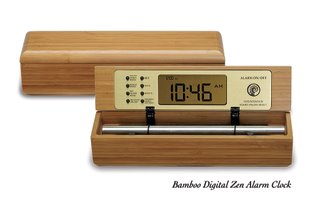 Bamboo Zen Timers Now & Zen
1638 Pearl St.
Boulder, CO 80302
Posted in Chime Alarm Clocks, Japanese Inspired Zen Clocks, Zen Timepiece by Now & Zen
 stillness Water gardens, also known as aquatic gardens, backyard ponds and garden ponds, usually referring to a man-made feature, typically combine a pool with aquatic plants and often ornamental fish. Fixed items such as rocks, fountains, statuary, waterfalls and watercourses can be combined with the pool to add visual interest and integration with the local landscape and environment.
Water gardens are a perfect place for a mindfulness practice.
adapted from wikipedia.org
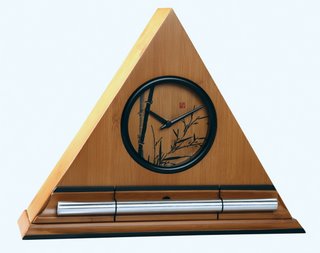 Bamboo Zen Chime Clock
Now & Zen
1638 Pearl St.
Boulder, CO 80302
Posted in Chime Alarm Clocks, Japanese Inspired Zen Clocks, Meditation Timers, Meditation Tools, Progressive Awakening, Well-being, Zen Timers
 Maneki Neko on Peter's kimono at Ten Thousand Waves Spa, Santa Fe, NM The Maneki Neko (“Beckoning Cat”; also known as Welcoming Cat, Lucky Cat, Money Cat, or Fortune Cat) is a common Japanese sculpture, often made of ceramic, which is believed to bring good luck to the owner. The sculpture depicts a cat (traditionally a Japanese Bobtail) beckoning with an upright paw, and is usually displayed—many times at the entrance—in shops, restaurants, and other businesses. Some of the sculptures are electric or battery-powered and have a slow-moving paw beckoning. I n the design of the sculptures, a raised right paw supposedly attracts money, while a raised left paw attracts customers.
To Westerners it may seem as if the Maneki Neko is waving rather than beckoning. This is due to the difference in gestures and body language recognized by Westerners and the Japanese, with Japanese beckoning by holding up the hand, palm out, and repeatedly folding the fingers down and back up, thus the cat’s appearance.
While it is believed that Maneki Neko first appeared during the later part of the Edo period (1603-1867) in Japan the earliest documentary evidence comes from the 1870s, during Japan’s Meiji Era. It is mentioned in a newspaper article in 1876 and there is evidence kimono-clad Maneki Neko were distributed at a shrine in Osaka during this time.
 Black Lacquer Zen Alarm Clock adapted from wikipedia.org
Now & Zen
1638 Pearl Street
Boulder, CO 80302
Posted in Chime Alarm Clocks, Japanese Inspired Zen Clocks, Now & Zen Alarm Clocks, Progressive Awakening, Zen Timers
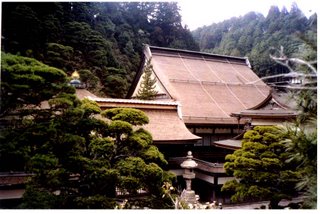 Koya-san, Japan Mount Kōya (Kōya-san) is the name of mountains in Wakayama prefecture to the south of Osaka. There is no one mountain officially called Kōya-san in Japan.
First settled in 819 by the monk Kukai, Mt. Koya is primarily known as the world headquarters of the Koyasan Shingon sect of Japanese Buddhism. Located in an 800 m high valley amid the eight peaks of the mountain (which was the reason this location was selected, in that the terrain is supposed to resemble a lotus plant), the original monastery has grown into the town of Koya, featuring a university dedicated to religious studies and 120 temples, many of which offer lodging to pilgrims.
adapted from wikipedia.org
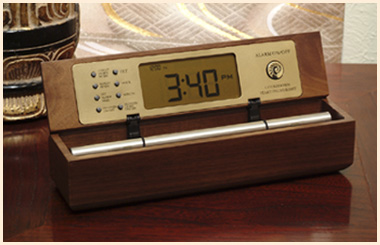 Digital Zen Alarm Clock Now & Zen
1638 Pearl St.
Boulder, CO
Posted in Chime Alarm Clocks, Japanese Inspired Zen Clocks, Meditation Timers, Meditation Tools, Now & Zen Alarm Clocks, Zen Gardens, zen monks, Zen Timers
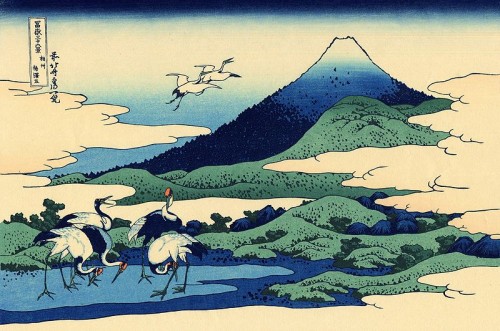 Hokusai Ukiyo-e Print, Umegawa in Sagami Province Mount Fuji (Fuji-san) is the highest mountain in Japan at 12,388 ft. Along with Mount Tate and Mount Haku, it is one of Japan’s “Three Holy Mountains”. An active volcano that last erupted in 1707–08, Mount Fuji is just west of Tokyo, and can be seen on a clear day. Mount Fuji’s exceptionally symmetrical cone is a well-known symbol of Japan and it is frequently depicted in art and photographs, as well as visited by sightseers and climbers.
While Hokusai’s Thirty-six Views of Mount Fuji is the most famous ukiyo-e series to focus on Mount Fuji, there are several other series with the same subject, including Hiroshige’s Thirty-six Views of Mount Fuji and Hokusai’s own later series One Hundred Views of Mount Fuji.
adapted from wikipedia.org
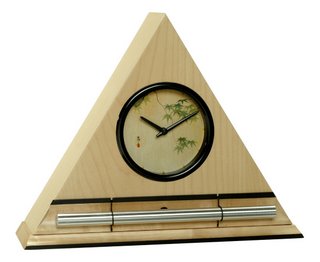 Zen Clocks by Now & Zen
Now & Zen
1638 Pearl Street
Boulder, CO 80302
(800) 779-6383
Posted in Chime Alarm Clocks, Meditation Timers, Meditation Tools, Now & Zen Alarm Clocks, Zen Timers
 Buddhist Loving Kindness Buddhist loving kindness Mettā or maitrī (sanskrit) has been translated as loving-kindness, friendliness, benevolence, amity, friendship, good will, kindness, love, sympathy, and active interest in others.
It is one of the ten paramitas of the Theravada school of Buddhism, and the first of the four Brahmaviharas. The mettā bhāvanā (“cultivation of mettā”) is a popular form of meditation in Buddhism.
“Loving-kindness” is a term first used in the 1535 Coverdale Bible. The idea is associated with the Christian concept of agape, or love of God, which is reflected in the quote:
“God is inherently kind, naturally compassionate, and everlastingly merciful. And never is it necessary that any influence be brought to bear upon the Father to call forth his loving-kindness.”
Beyond Christianity, English translations of the writings of the Bahá’í Faith also use the term “loving-kindness” when referring to the original Persian “mohabbat”.
Buddhist Loving Kindness adapted from wikipedia.org
Posted in Chime Alarm Clocks, Meditation Timers, Meditation Tools, mindfulness practice, Natural Awakening, Now & Zen Alarm Clocks, prayer, Progressive Awakening, Well-being, Yoga Timer, Yoga Timers by Now & Zen, Zen Timers
a haiku master, Matsuo Basho from Japan
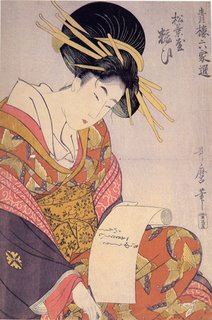 Haiku Ukiyo-e by Kitagawa Utamaro, woodblock print Matsuo Bashō (1644 – 1694) was the most famous poet of the Edo period in Japan. During his lifetime, Bashō was recognized for his works in the collaborative haiku no regata form; today, after centuries of commentary, he is recognized as a master of brief and clear haiku.
Despite his success, Bashō grew dissatisfied and lonely. He began to practice Zen meditation.
“Spring morning marvel
lovely nameless little hill
on a sea of mist”
–haiku by Basho translated by Peter Beilenson
 - Zen Alarm Clock in Maple Finish, Japanese Leaves Dial Face
wikipedia.org
Now & Zen
1638 Pearl St.
Boulder, CO 80302
Posted in Cherry Blossoms, Chime Alarm Clocks, Japanese Inspired Zen Clocks, Japanese Poetry, Meditation Tools, Natural Awakening, Now & Zen Alarm Clocks, Progressive Awakening, Zen Timers
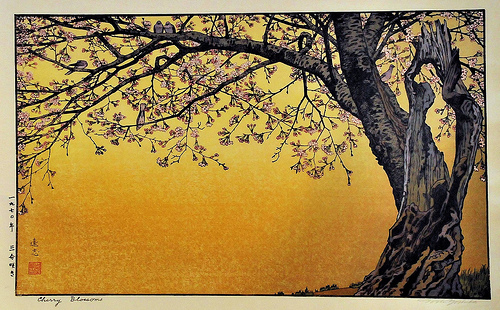 Ukiyo-e Toshi Yoshida Sanbu Zaki Cherry Blossoms In Japan cherry blossoms symbolize clouds due to their nature of blooming en masse, besides being an enduring metaphor for the ephemeral nature of life, an aspect of Japanese cultural tradition that is often associated with Buddhistic influence.
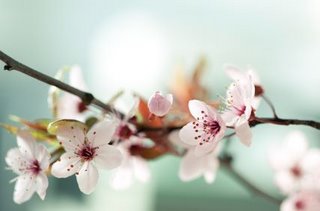 cherry blossoms like clouds The transience of the blossoms, the extreme beauty and quick death, has often been associated with mortality; for this reason, cherry blossoms are richly symbolic, and have been utilized often in Japanese art and film, as well as at musical performances for ambient effect.
from wikipedia.org
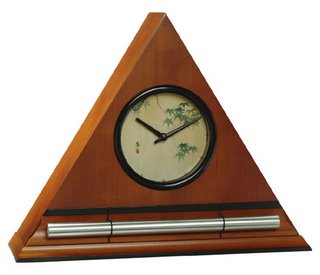 Zen Clocks by Now & Zen, Boulder, CO
Now & Zen Headquarters
1638 Pearl Street
Boulder, CO 80302
(800) 779-6383
Posted in Chime Alarm Clocks, Japanese Inspired Zen Clocks, Meditation Timers, Now & Zen Alarm Clocks, Progressive Awakening
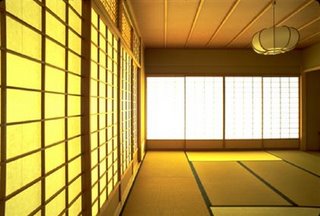 tatami-floored tea room for tea ceremony ...the art of ‘way of tea’ inspired by Japan…
By the 16th century, tea drinking had spread to all levels of society in Japan.
Almost any place where implements for the making and serving of the tea can be set out, and where the host can make the tea in the presence of the seated guest(s), can be used as a venue for tea.
A tatami-floored room with adjacent mizuya space for the host to conduct preparations of the various items to be used is required for a full chaji.
Many schools of Japanese tea ceremony have evolved through the long history of chadō and are active today.
from wikipedia.org
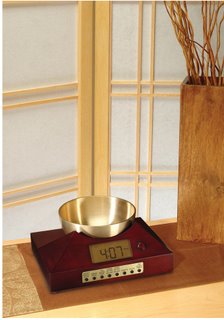 Zen Timepiece, a chime alarm clock and timer in cherry finish Now & Zen Headquarters
1638 Pearl Street
Boulder, CO 80302
(800) 779-6383
Posted in Chime Alarm Clocks, Japanese Inspired Zen Clocks, Meditation Tools, Natural Awakening, Now & Zen Alarm Clocks, Tea Ceremony, wabi-sabi, Zen Timepiece by Now & Zen, Zen Timers
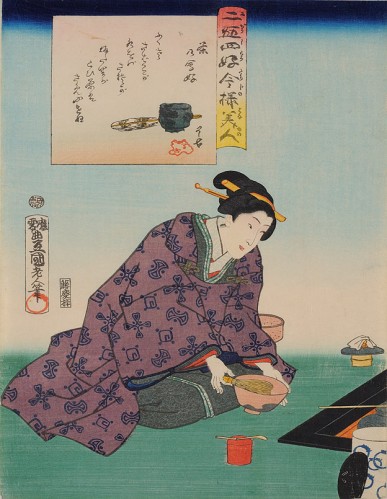 Utagawa Kunisada (1786-1865), a woman performing the tea ceremony The Japanese tea ceremony, also called the Way of Tea, is a Japanese cultural activity involving the ceremonial preparation and presentation of matcha, powdered green tea.
Many of the movements and components of tea ceremony from Japan, evolved from the wearing of kimono and, although it is not uncommon for students nowadays to wear western clothes for practice, most will practice in kimono at least some of the time, for this is essential to learn the prescribed motions properly.
wikipedia.org
 Zen Timer for tea ceremony, black laquer "E" tone digital version Now & Zen
1638 Pearl Street
Boulder, CO 80302
(800) 779-6383
Posted in Chime Alarm Clocks, Japanese Inspired Zen Clocks, Meditation Timers, Now & Zen Alarm Clocks, Tea Ceremony
« Previous Page
Next Entries »
|
|
|
|